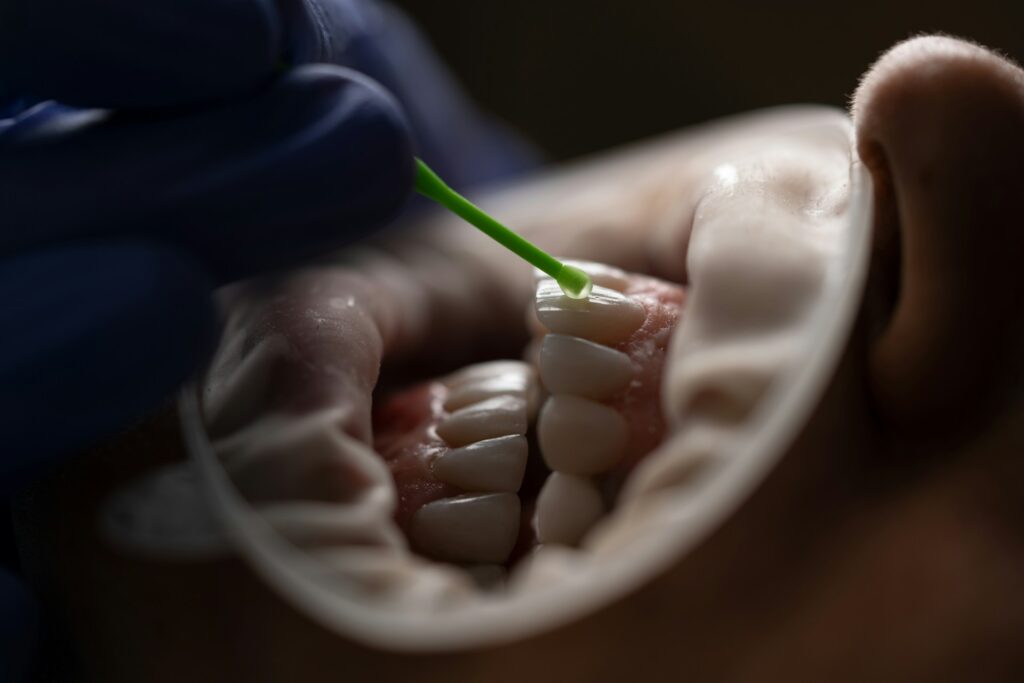Tooth loss can be a significant concern affecting both oral health and self-confidence. Whether caused by injury, decay, or disease, replacing missing teeth is essential for maintaining a healthy smile. Two popular solutions for tooth replacement are dental bridges and dental implants. Both options offer unique advantages, making it essential to understand their differences before making a choice.
In this comprehensive guide, we will explore the key aspects of dental bridge vs implant, including their benefits, costs, procedures, durability, and more.
What is a Dental Bridge?
A dental bridge is a fixed prosthetic device designed to replace one or more missing teeth. It consists of a false tooth (pontic) held in place by adjacent natural teeth or dental crowns.
Types of Dental Bridges
- Traditional Dental Bridge – Supported by crowns on adjacent teeth.
- Cantilever Bridge – Supported by a single tooth on one side.
- Maryland Bridge – Uses a metal or porcelain framework attached to adjacent teeth.
- Implant-Supported Bridge – Secured by dental implants instead of natural teeth.
Pros of Dental Bridges
- Quicker procedure compared to implants.
- Cost-effective alternative to implants.
- Non-invasive compared to implant surgery.
- Provides a natural appearance.
Cons of Dental Bridges
- Requires the alteration of healthy adjacent teeth.
- Less durable than implants.
- Increased risk of decay in supporting teeth.
- May need replacement after 10-15 years.
What is a Dental Implant?
A dental implant is a titanium post surgically placed into the jawbone to serve as an artificial root. It provides a stable foundation for a replacement tooth (crown) or bridge.
Types of Dental Implants
- Endosteal Implants – Placed directly into the jawbone.
- Subperiosteal Implants – Positioned under the gum but above the bone.
- All-on-4 Implants – Supports an entire arch of teeth using four implants.
Pros of Dental Implants
- Long-lasting and durable (can last a lifetime).
- Preserves jawbone health and prevents bone loss.
- Does not affect adjacent healthy teeth.
- Offers superior aesthetics and functionality.
Cons of Dental Implants
- Higher initial cost than dental bridges.
- Requires surgery and longer healing time.
- Not suitable for patients with insufficient bone density.
- Potential complications such as infection or implant failure.
Dental Bridge vs Implant: A Detailed Comparison
1. Procedure
- Dental Bridge: Requires trimming of adjacent teeth, followed by placement of the bridge.
- Dental Implant: Involves surgical insertion of a titanium post, followed by crown attachment.
2. Cost
- Dental Bridge: $2,000 – $5,000 (varies by type and material).
- Dental Implant: $3,000 – $6,000 per implant (may increase with additional procedures).
3. Durability & Longevity
- Dental Bridge: Lasts around 10-15 years with proper care.
- Dental Implant: Can last a lifetime with maintenance.
4. Oral Health Impact
- Dental Bridge: Involves removal of enamel from healthy teeth.
- Dental Implant: Preserves bone health and natural teeth.
5. Aesthetic and Functional Benefits
- Dental Bridge: Provides a natural look but may not be as strong as implants.
- Dental Implant: Feels and functions like a natural tooth.
Which Option is Best for You?
The choice between a dental bridge vs implant depends on several factors, including budget, oral health, and personal preferences.
- Choose a Dental Bridge if:
- You want a quicker and more affordable solution.
- You prefer a non-surgical approach.
- Your adjacent teeth require crowns.
- Choose a Dental Implant if:
- You want a long-term, durable solution.
- You have good bone density.
- You want to prevent jawbone deterioration.
FAQs
1. Are dental implants painful?
The procedure involves local anesthesia, so discomfort is minimal. Some soreness may occur after surgery but can be managed with pain medication.
2. How long does it take to get a dental implant?
The entire process, including healing time, can take 3-6 months.
3. Do dental bridges look natural?
Yes, high-quality materials ensure dental bridges blend seamlessly with natural teeth.
4. Is age a factor when choosing between a dental bridge vs implant?
Dental implants are more suited for adults with healthy bones, while bridges may be preferable for older individuals with weaker bones.
Conclusion
Both dental bridges and implants offer effective solutions for replacing missing teeth. A dental implant provides superior durability and oral health benefits, while a dental bridge is a more affordable and quicker option. Consulting a dentist will help determine the best choice based on individual needs and oral health conditions.
By understanding the key differences between dental bridge vs implant, you can make an informed decision that enhances your smile and overall well-being.


